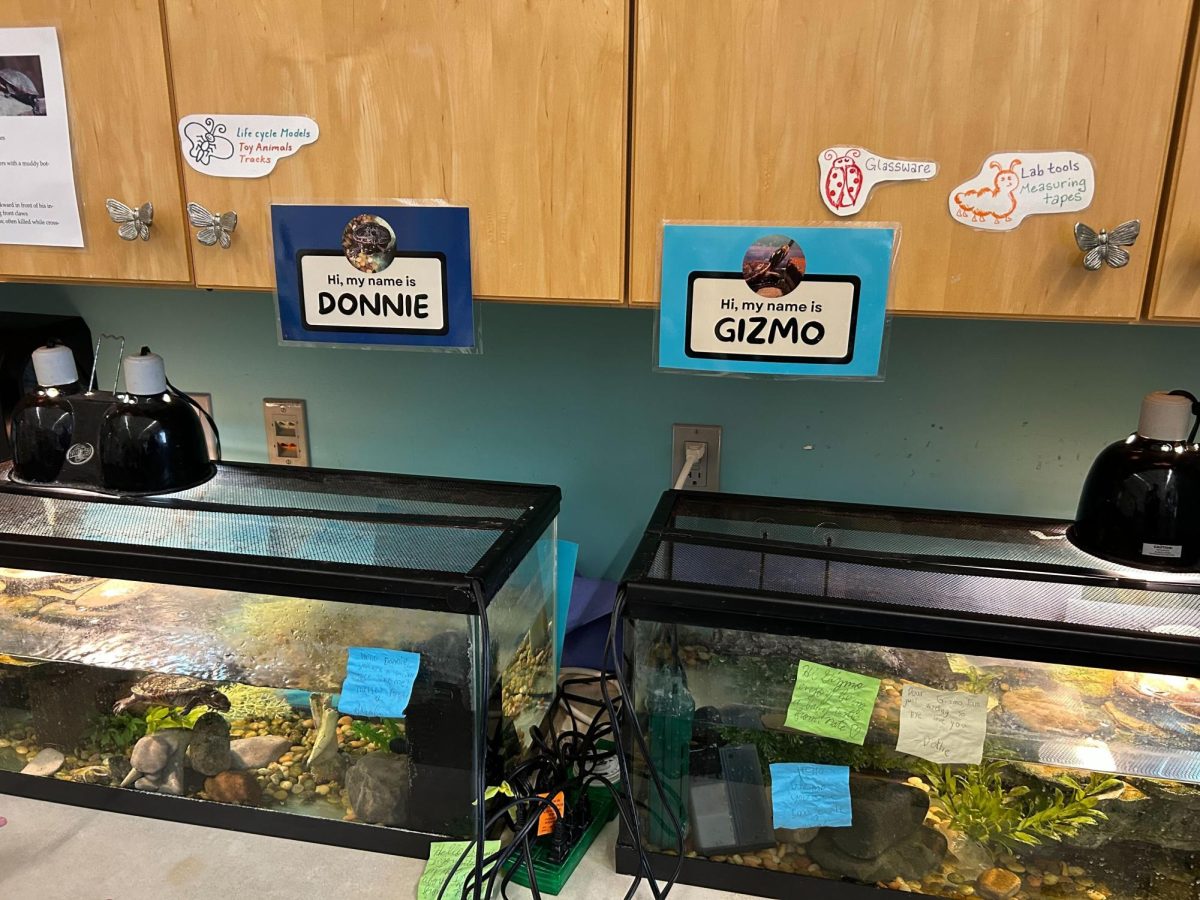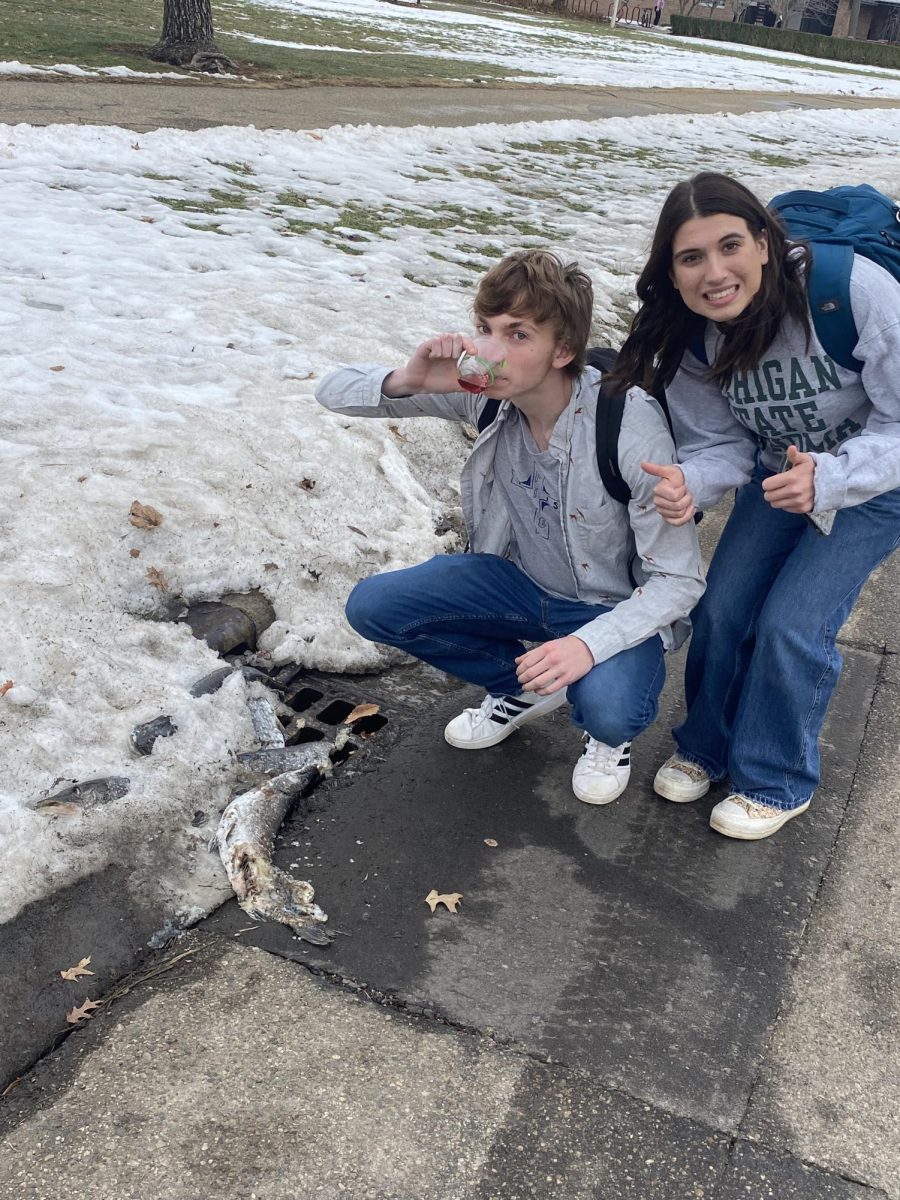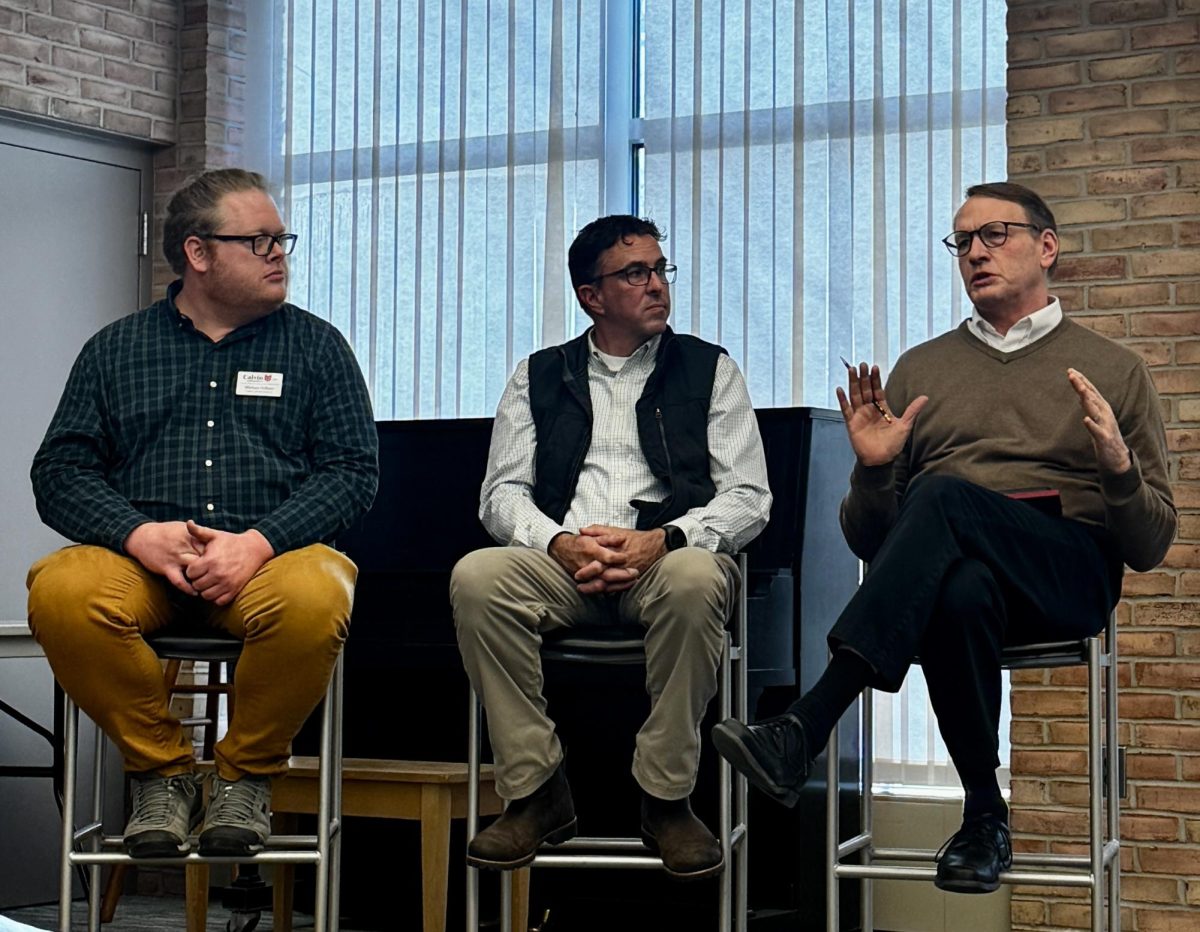This past Friday, ten Calvin students presented their research at the annual Michigan Academy of Science, Arts and Letters conference.
Five students gave oral presentations, while five students presented posters describing their research. Oral presentations ran for 10-15 minutes, allowing students just enough time to provide a brief overview of their findings and its significance.
The majority of the oral presentations were part of the “Botany & Plant Ecology” session. Senior Dorthea Leisman and junior Emily Van Staalduinen presented their summer research project, which they conducted under the supervision of biology professor Dave Warners. They examined the current flora of Grand Rapids and compared it to a description of the flora over a century prior.
Also presenting in the “Botany & Plant Ecology” session were juniors Phillip Tubergen and Kara Smit. Both students presented their individual projects on the impacts of the invasive autumn olive on the surrounding plant community and soil fertility. Biology professor Dave Dornbos supervised both Tubergen and Smit’s research.
Senior Michael Messina presented research he conducted with four other students in the “Environmental Science & Ecology” session. Geography professor Deanna van Dijk was the faculty sponsor for Messina’s project, which centered on the threatened pitcher’s thistle.
Seniors Katy Gerber, Charlotte Reynolds, Kaitlyn Etienne, Lincoln Grevengoed and Matt Williams prepared posters for the conference.
Messina, Gerber, Reynolds, Etienne, Grevengoed and Williams’ research was part of the Geology, Geography and Environmental Studies department’s First Year Research in Earth Sciences (FYRES) course. In this class, upperclassmen students guide freshmen through a research project related to Lake Michigan’s dune systems.
The conference, the Michigan Academy of Science, Arts and Letters, was held at Saginaw Valley State University. It is an annual conference, held every March. Its objectives, according to its constitution, are “to promote research and to diffuse knowledge.”
As the group’s title suggests, the conference is open to students and faculty from all fields, not just the sciences.
Representing Calvin outside of the sciences was history professor Eric Washington. His talk, titled “African American Baptist Cooperationism and African missions, 1840-1880,” focused on African American Baptists associations and their role in sending missionaries to Africa. Professor Washington was also the chair of the history panel, presiding over all the presentations and ensuring they remained on schedule.
Washington was the lone representative of Calvin’s humanities departments.
“Since I have been chair of the History Panel, I have been successful in recruiting one history major to present research,” Washington told Chimes. “That was two years ago. I would love to see more of our students in the humanities to present their work.”
“In order to make that happen, faculty in the humanities should begin attending the conference.”
The conference is a way for faculty and students to make academic connections in a safe environment.
“I love it,” Washington said. “I have made some good connections with colleagues in my field over the years. The climate is very friendly and affirming of all our research and work.”








